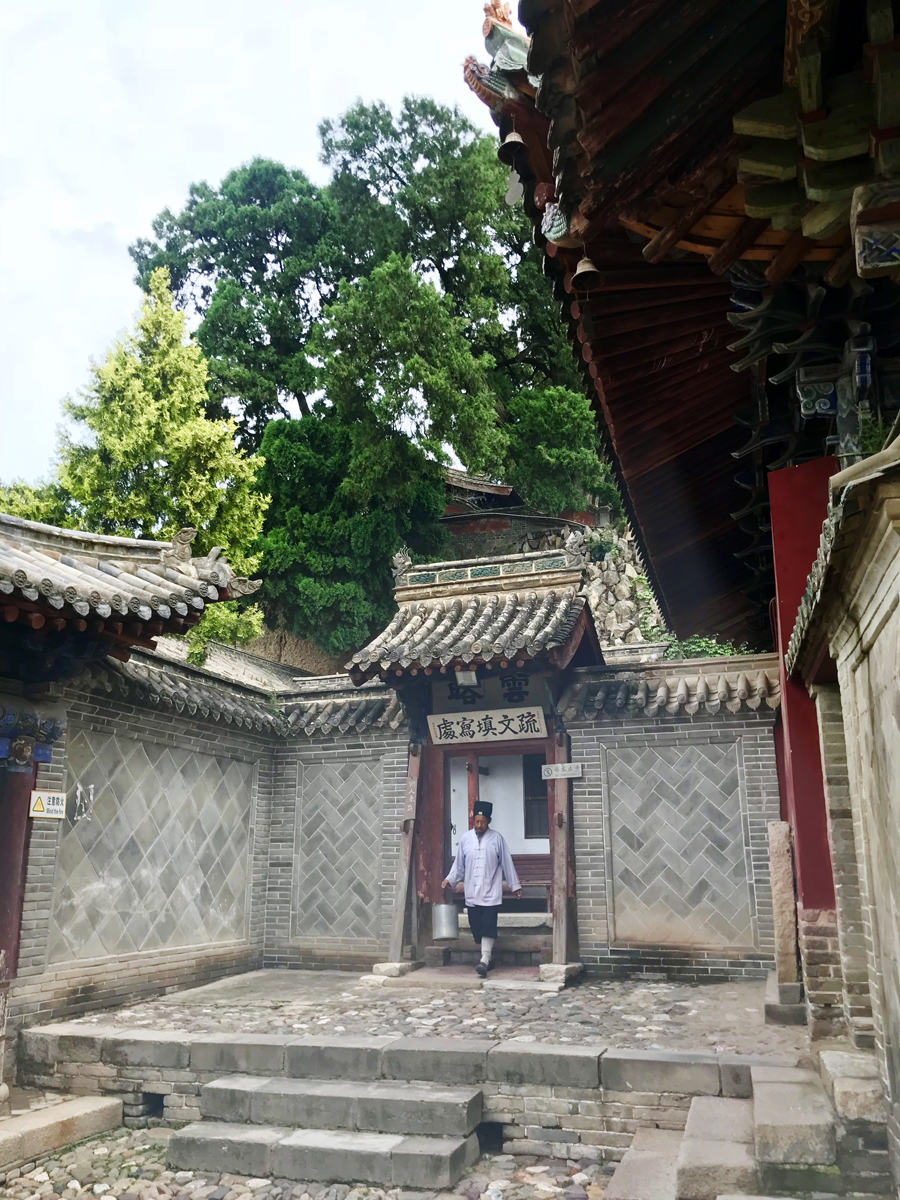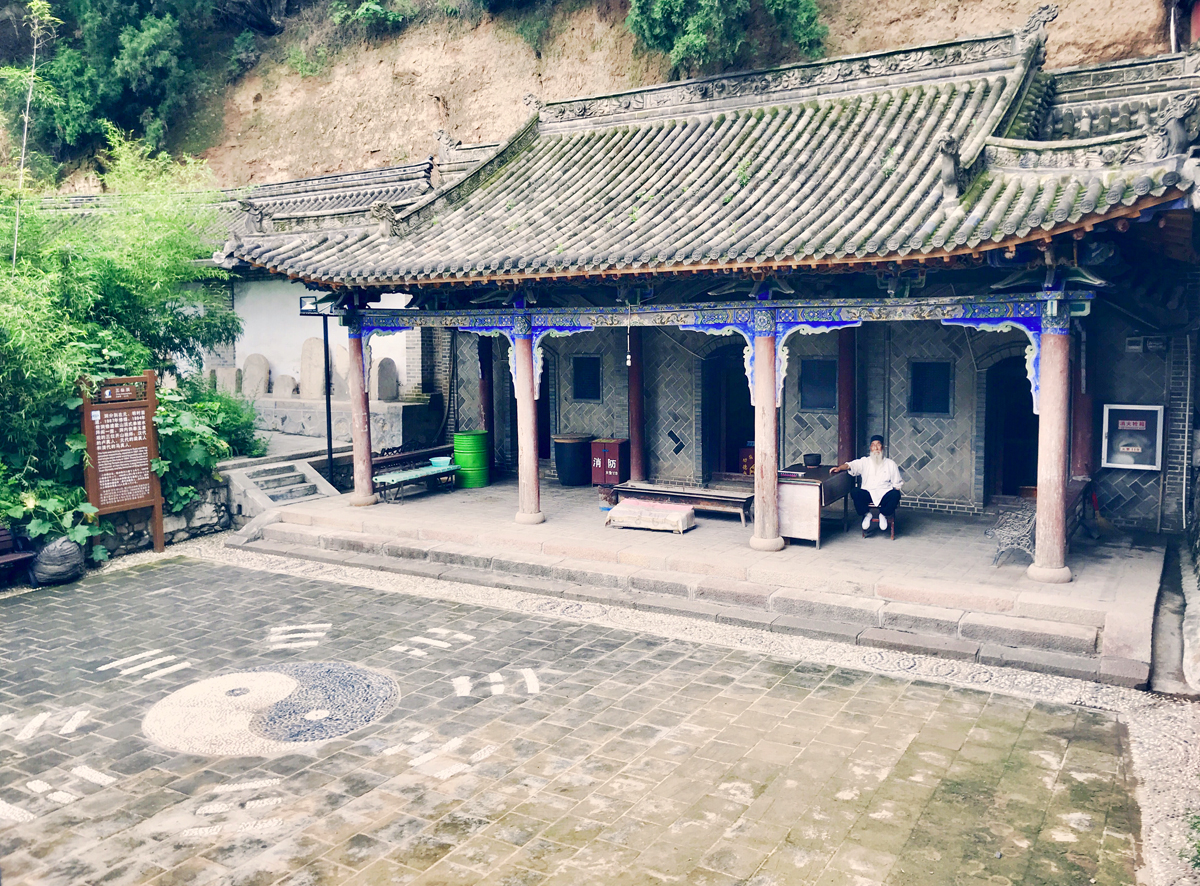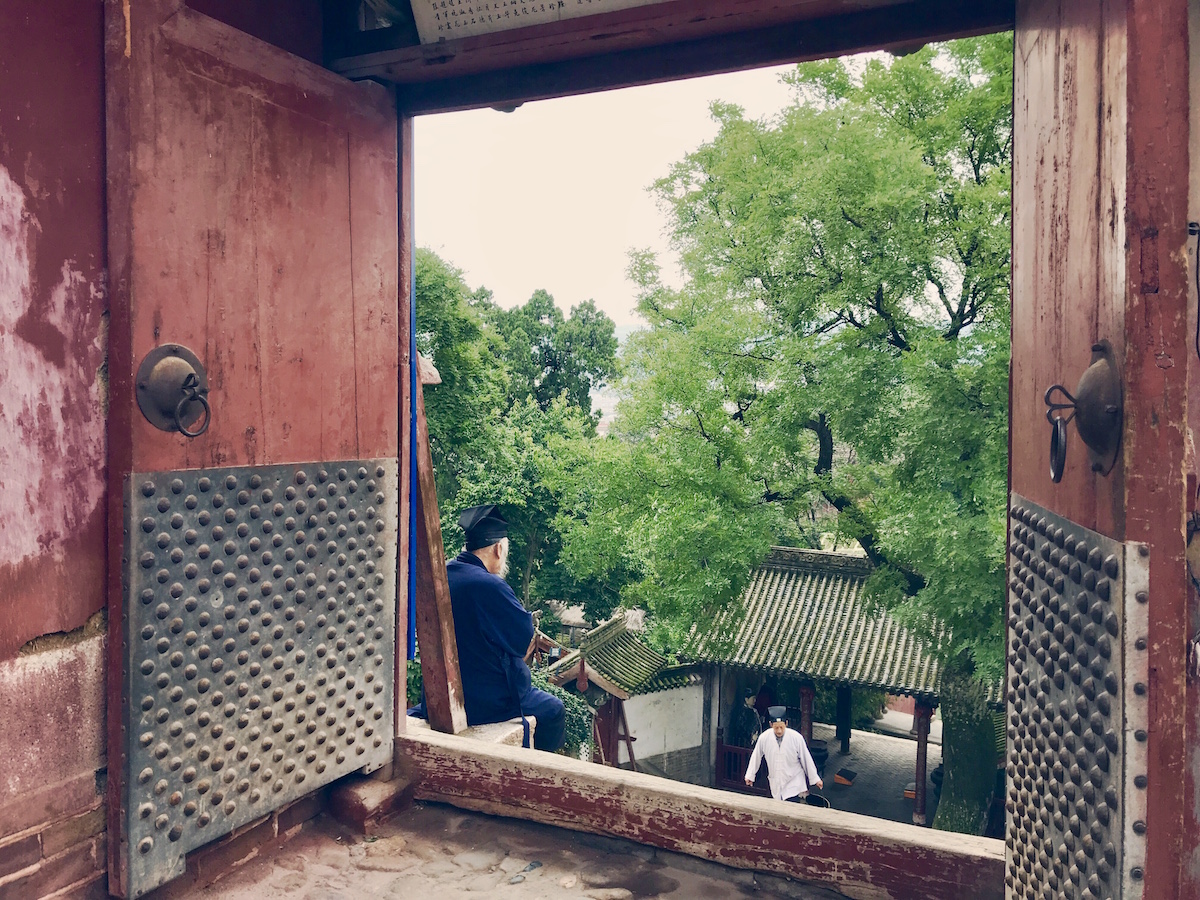
Located at the base of the Tianjing Mountain in the city of Tianshui, the Yuquan Taoist Temple is a colossal complex that sprawls up the mountainside, covering an area of nearly 170,000 square metres (203,318 sq. yd.). The temple was originally built during the Tang Dynasty (618-907) under the rather uninspired name of Beishan or “North Mountain” Temple, but its name was eventually changed to the Yuquan or “Jade Spring” Temple during the Song Dynasty (960-1279). The name was derived from a local spring, which supposedly sprouted water that was so clear and beautiful that it resembled lustrous jade. In-keeping with its aquatic name, you’re sure to be blown out of the water when you see how beautiful this temple complex is!
Tragically the original temple was almost completely destroyed during the collapse of the Song Dynasty, but it was restored to its former glory during the Yuan Dynasty (1271-1368) and underwent over 30 extensions from then until the Qing Dynasty (1644-1912). The final renovation project took place during the 1980s and left the temple with more than 90 separate buildings. The temple complex itself is peppered with lush cypress trees, some of which are over 1000 years old, and contains two very famous stone tablets: one of which was inscribed by Kublai Khan, grandson of Genghis Khan and founder of the Yuan Dynasty; and the other by an illustrious Yuan Dynasty calligrapher named Zhao Mengfu. The most notable features within the temple are arguably: the Spirit Official Hall, the Jade Emperor Hall, the Doumu Hall, the Three Qing Hall, the Jade Spring, the Immortal Cave, the Three-Immortal Cave, and the Dai Temple.
The Spirit Official Hall is the first part of the temple that you come to after entering and is dedicated to Spirit Officer Wang, the Supreme Patron God of Taoism. According to Taoist tradition, Wang is ranked among the top five hundred spirit officers and supposedly possesses the ability to suppress demons. That’s a pretty impressive skill to have on your CV, even for a deity! Unfortunately he pales in comparison to the inhabitant of the nearby Jade Emperor Hall, where one of the most holy deities in the Taoist canon is consecrated. The Jade Emperor ranks among the highest deities in the Taoist pantheon and his hall is more like a miniature temple in its own right, which is a testament to his importance. It consists of a main temple hall, two side temples, a pavilion, a bell tower, a drum tower, and an archway. Every year, on the 9th day of the first month according to the Chinese lunar calendar, a magnificent temple fair is held in this hall in honour of the Jade Emperor’s birthday. Talk about extravagant!

It seems, however, that even the Jade Emperor has competition! The Three Qing Hall is dedicated to the “Three Qing” or the Three Pure Ones, which are unequivocally acknowledged as the highest ranking deities in Taoism and are sometimes referred to as the “Taoist Holy Trinity”. According to traditional Taoist theory, the way of the Tao produces One, One leads to Two, and finally Two creates Three. The first of the Pure Ones, Yuanshi Tianzun, represents One, since he oversaw the creation of the universe out of nothingness. Once their job was completed, Yuanshi Tianzun manifested into the second of the trinity, Lingbao Tianzun, who classified the elements into their rightful groups and separated the Yang from the Yin. During the final stage of creation, known as Two creating Three, Lingbao Tianzun manifested into Daode Tianzun, who preached the Law to all living beings and thus brought about civilisation. The Three Pure Ones are a distinctly abstract concept, as they each represent both a deity and a heaven. That being said, to avoid confusion, they are often depicted as elderly sages sat upon thrones.
While she may not have achieved the illustrious status of the Three Pure Ones, the Doumu Hall is dedicated to the goddess Doumu, who nonetheless ranks quite highly within the Taoist pantheon and is considered to be the mother of all stars. In fact, she is thus believed to have absolute power over the future of all things in the universe, so don’t underestimate her importance or you’ll sorely regret it! During the early Yuan Dynasty, the hall was often referred to as the “Big Dipper Platform” because it was used by a Taoist priest named Liang Zhitong to worship the stars and the Big Dipper. In other words, a trip to this hall at night may just leave you feeling starry-eyed! Near to the Doumu Hall lies the titular Jade Spring, where crystal clear spring water has supposedly flowed for hundreds of years. It is rumoured that this spring water is not only extremely refreshing, but can also treat a variety of eye-related diseases, meaning it is sometimes nicknamed the Mingyan or “Brightening Eyes” Spring.

At the back of the temple complex lie the Immortal Cave and the Three-Immortal Cave which, though they may sound similar, serve slightly different purposes. The Immortal Cave was originally used by the Taoist priest Liang Zhitong to practice special Taoist rituals and he was supposedly buried in this cave after achieving immortality. We’re not quite sure why an immortal person would need to be buried, but we’re happy to leave it a mystery! The Three-Immortal Cave, on the other hand, is a hand-carved cave that commemorates the three legendary founders of the temple: Lü Dongbin, one of the Eight Immortals of Taoism; the aforementioned Liang Zhitong, who achieved immortality during the Yuan Dynasty; and Ma the Immortal, who was another Taoist priest that supposedly achieved immortality during the Qing Dynasty.
The Dai Temple is located in a completely separate part of the temple complex and was constructed during the Qing Dynasty, making it the youngest part of the temple. It originally consisted of two ancestral halls: one for Lord Zhou, and one for Lord Tuo. It was eventually rebuilt as the Dai Temple and is primarily dedicated to one of the Four Heavenly Emperors of Taoism: Dongji Qinghua or the “East Pole Emperor of Blue Essence”. More importantly, however, this section of the temple is home to a gruesome display of statues that are designed to represent the many tortures that immoral people will face in the underworld. It’s the ideal place to visit if your friends and family have been behaving badly!
Make your dream trip to The Yuquan Temple come true on our travel: Explore the Silk Road in China